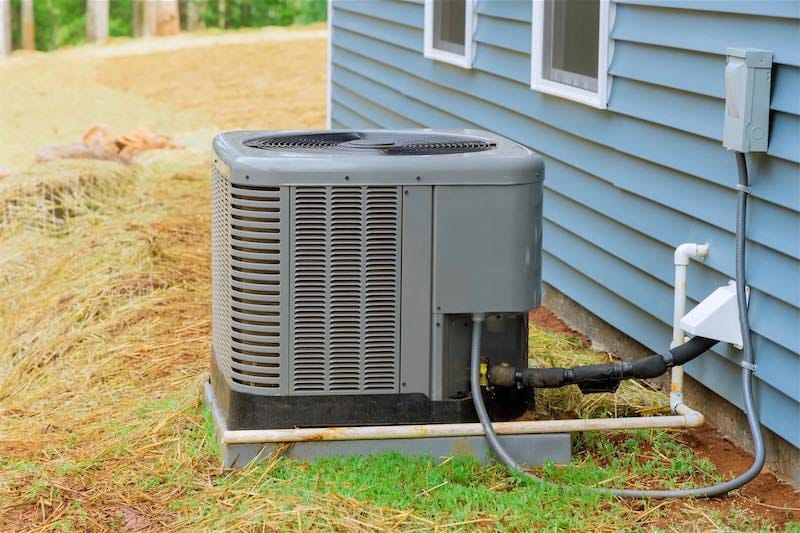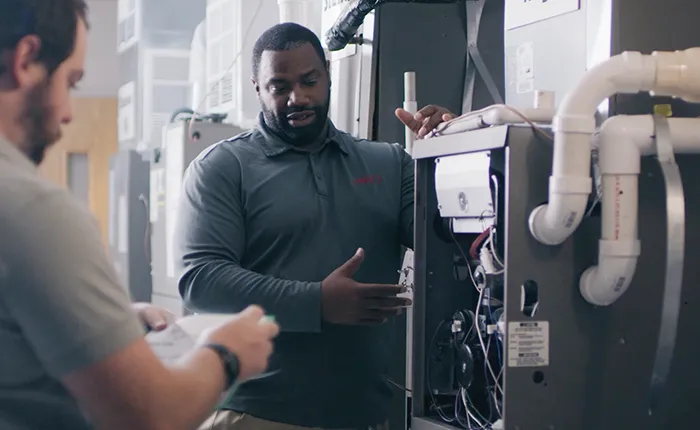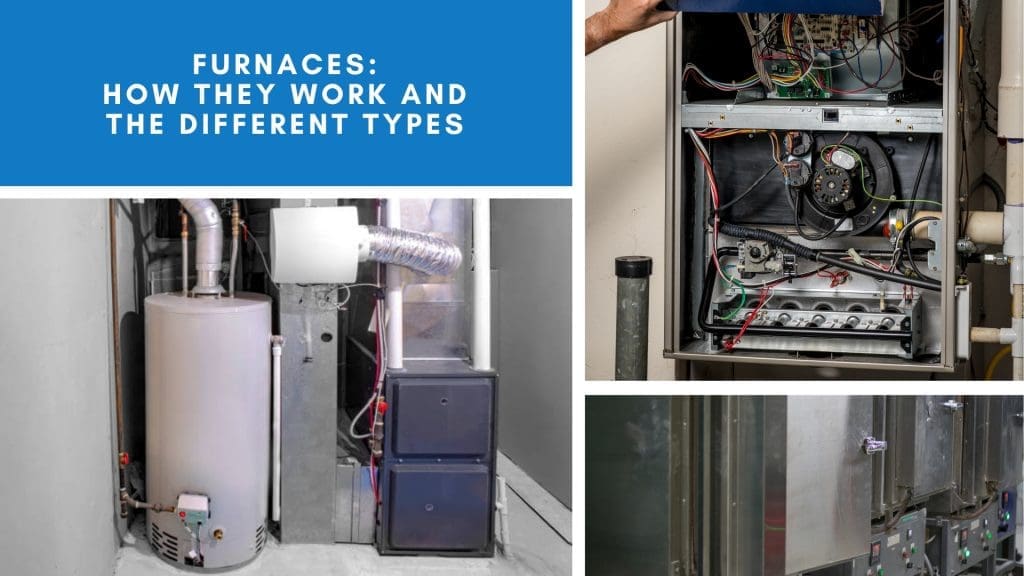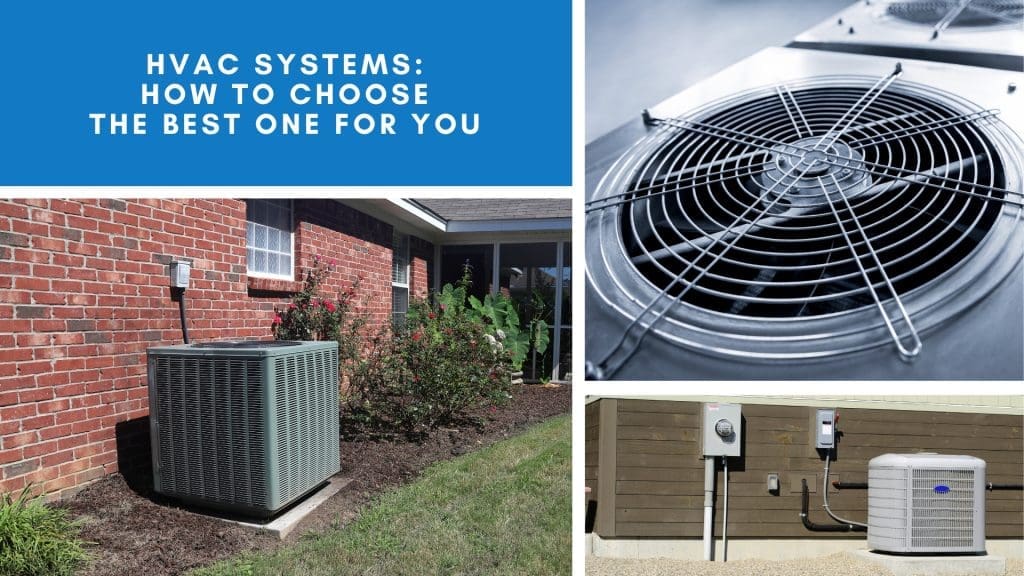A home warranty is a service contract that covers the repair or replacement of major home systems and appliances that break down due to normal wear and tear. Unlike homeowners insurance, which covers damage from events like fire or natural disasters, a home warranty specifically covers mechanical failures. This distinction is crucial, as mechanical failures are more common and can occur unexpectedly, causing significant disruption to your daily life. By investing in a home warranty, especially one that includes Home Warranty Coverage for HVAC Systems, homeowners can protect themselves from the costly repairs that can arise from these inevitable breakdowns.

Why Consider a Home Warranty for Your HVAC System?
Given the complexity and cost of HVAC systems, having a home warranty can offer peace of mind. Repairs and replacements can be expensive, and a warranty can help mitigate these costs. This is particularly beneficial for those who prefer to have professionals handle any issues, ensuring quality service and customer satisfaction. Moreover, HVAC systems are intricate, with many components that can wear out over time. A home warranty ensures that you have access to skilled technicians who can address problems efficiently, reducing the likelihood of prolonged downtime.
Additionally, a home warranty can be a valuable asset when selling a home. Prospective buyers often view a home warranty as a reassurance that they will not face unexpected expenses shortly after purchasing the property. It can make your home more attractive in a competitive real estate market, potentially speeding up the sale process and increasing your return on investment.

What Does a Home Warranty Cover in an HVAC System?
It’s important to understand what aspects of your HVAC system are covered by a home warranty. Coverage typically includes:
- Central Air Conditioners: This covers both the interior and exterior units. Central air conditioning systems are vital for cooling your home efficiently, and a malfunction can lead to uncomfortable living conditions. Ensuring these units are covered means you won’t have to endure the heat while waiting for costly repairs.
- Furnaces and Heating Systems: Includes repair or replacement of malfunctioning components. Heating systems are crucial during colder months, and an unexpected failure can not only cause discomfort but also lead to secondary issues like frozen pipes. A warranty provides assurance that help is available when needed.
- Ductwork: Coverage for leaks or blockages that affect system performance. Ductwork is often overlooked, but it plays a critical role in distributing air throughout your home. Problems here can lead to uneven temperatures and increased energy bills, so having coverage can be a cost-saving measure.
- Thermostats: Repair or replacement of faulty units. The thermostat is the control center for your HVAC system, and a malfunction can render your entire system ineffective. Coverage ensures that you can maintain optimal control over your home’s climate.
What’s Not Covered?
Most warranties do not cover routine maintenance, pre-existing conditions, or cosmetic defects. Additionally, modifications to the home that affect the system, such as renovations, might not be covered unless specified. It’s important to read the fine print of your warranty agreement to fully understand the exclusions. Routine maintenance is essential for keeping your system in good working order, and neglecting this can void your warranty coverage. Homeowners should also be aware that cosmetic damages or aesthetic preferences are typically not covered, so any upgrades for appearance alone will be out-of-pocket expenses.

How to Choose the Best Home Warranty for Your HVAC System
When selecting a home warranty, consider the following:
Evaluate Your Needs
Assess your current HVAC system. Is it an older model that may require more frequent repairs? Or is it a newer system where you’re more concerned about major component failures? Understanding the age and condition of your system can guide you in selecting a warranty that offers the most value. An older system might benefit from comprehensive coverage that includes more frequent repairs, while a newer system may only need coverage for significant breakdowns.
Consider your personal comfort with handling repairs yourself versus relying on professional services. If you prefer to have experts handle issues, a more robust warranty with extensive coverage and low service fees might be the best choice.
Research Providers
Look for reliable AC installation companies and warranty providers with positive reviews and a track record of quality service. Check their coverage specifics to ensure they align with your needs. A reputable provider will offer transparent terms and conditions, making it easier for you to understand what is included in your coverage. Customer reviews and ratings can provide insight into the provider’s reliability and responsiveness, which are crucial when your HVAC system needs attention.
It’s also beneficial to seek recommendations from friends, family, or neighbors who have had positive experiences with their home warranty providers. Word-of-mouth referrals can be a valuable resource in making a well-informed decision.
Compare Costs
Use an HVAC replacement cost estimator to determine potential out-of-pocket expenses without a warranty. Compare this with the cost of the warranty premiums and deductibles. Understanding these costs can help you determine whether a home warranty is a worthwhile investment for your specific situation. Some homeowners find that the peace of mind offered by a warranty outweighs the financial outlay, especially if they have an older system more prone to breakdowns.
Additionally, consider the cost of any add-ons you might need, such as coverage for additional systems or appliances. These costs can add up, so it’s important to weigh them against the potential benefits.
Understand the Service Process
Get clarity on how service requests are handled. Is there a quick response time? Are the HVAC contractors reputable? Knowing these details can save you time and frustration. A provider with a streamlined service process will ensure that your repairs are handled promptly, minimizing inconvenience. Reputable contractors are more likely to provide quality service, ensuring that repairs are effective and long-lasting.
Inquire about the typical turnaround time for service requests and whether the provider offers emergency services for urgent repairs. These factors can be critical during extreme weather conditions when HVAC systems are most needed.
How to Make the Most of Your Home Warranty
Regular Maintenance
Even with a home warranty, regular maintenance is crucial. It not only extends the life of your HVAC system but also ensures that warranty claims are not denied due to neglect. Regular maintenance includes tasks like changing air filters, cleaning coils, and checking for leaks, which help keep your system running smoothly. By maintaining your system, you can prevent small issues from escalating into major problems that could lead to costly repairs or replacements.
Many home warranty providers require proof of regular maintenance to process claims, so keeping up with these tasks can protect your coverage. Consider scheduling annual inspections with a professional to ensure your system is in top condition.
Document Everything
Keep detailed records of all service calls, maintenance, and repairs. This documentation can be invaluable when filing a claim. Having organized records readily available can streamline the claims process and reduce the likelihood of disputes with your warranty provider. Documentation can also help you track the performance of your HVAC system over time, identifying patterns or recurring issues that may need addressing.
In addition to keeping receipts and service reports, consider maintaining a digital log of communications with your warranty provider. This can serve as evidence of your diligence in maintaining the system and adhering to the terms of your warranty.
Know How to File a Claim
Familiarize yourself with the process for filing a claim. Quick and proper filing can make a significant difference in how swiftly an issue is resolved. Understanding the steps involved, such as who to contact and what information is required, can expedite the process and reduce stress. Be sure to have your warranty policy number, details of the problem, and any relevant documentation on hand when making a claim.
Proactively contacting your provider and following up on the status of your claim can ensure that it is handled efficiently. Prompt action can prevent minor issues from escalating into larger problems.
Real-Life Scenarios: When a Home Warranty Proves Essential
Consider the scenario of a stay-at-home mom balancing work and childcare. During a heatwave, the air conditioning unit fails. With a home warranty, she can quickly schedule a repair, ensuring her home remains comfortable without disrupting her routine. The convenience of having a warranty means she doesn’t have to worry about finding a reliable technician or the unexpected expense of a sudden repair, allowing her to focus on her family and work.
Similarly, a small business owner working from home can ill afford an HVAC breakdown. A home warranty provides a fast-track solution to keep their home office running smoothly. The ability to maintain a comfortable working environment is crucial for productivity, and a warranty ensures that any disruptions are minimized, protecting their business operations.
In both scenarios, the home warranty acts as a safety net, providing assurance that help is readily available when needed. These examples highlight the practical benefits of a home warranty, offering real-world peace of mind and financial protection.
Frequently Asked Questions
Does a Home Warranty Cover AC Unit Replacement?
Yes, most comprehensive home warranties cover the replacement of an AC unit, provided the failure is due to normal wear and tear. However, it’s important to verify the specific terms of your warranty, as coverage details can vary between providers. Some warranties may have specific exclusions or conditions that must be met for a replacement to be approved.
It’s also essential to understand what constitutes “normal wear and tear” as defined by your warranty provider. This understanding can help you maintain your system properly and prevent claim denials.
How Can I Get My Home Warranty to Replace My AC Unit?
Ensure you’ve kept up with regular maintenance and understand the terms of your coverage. When a problem arises, file your claim promptly with all necessary documentation. Providing thorough and accurate information can facilitate a smoother claims process and increase the likelihood of approval. Regular maintenance records serve as proof that you have fulfilled your obligations under the warranty, which can be a decisive factor in the approval of a replacement.
Maintaining open communication with your warranty provider can also expedite the process. Don’t hesitate to ask for clarification on any aspect of your coverage if you’re unsure.
What is the Cost of Installing a New HVAC System with a Warranty?
The cost varies based on the system size, brand, and complexity of installation. Use a new HVAC system cost calculator to get an estimate. A home warranty can offset significant portions of these costs when replacements are necessary. It’s important to compare the estimated costs of installation and potential repairs with the premiums and deductibles associated with a home warranty.
Consider the long-term savings a warranty might provide, especially if your current system is prone to breakdowns or nearing the end of its lifespan. A warranty can be a cost-effective strategy to manage these expenses over time.
Conclusion: Home Warranty Coverage for HVAC Systems
A home warranty for your HVAC system is an investment in peace of mind. By understanding what is covered, how to choose the right plan, and how to effectively use your warranty, you can ensure your home remains a haven of comfort and efficiency. Homeownership comes with many responsibilities, and a home warranty provides a safety net that can alleviate some of the burdens associated with maintaining essential systems.
For expert advice or HVAC service, feel free to contact LC Heating and Air Conditioning. We are committed to providing reliable and trustworthy service to keep your home comfortable. Our team of experienced professionals is ready to assist with any HVAC needs, ensuring that your system operates efficiently year-round.
www.lahvaclc.com | (818) 858-7080


